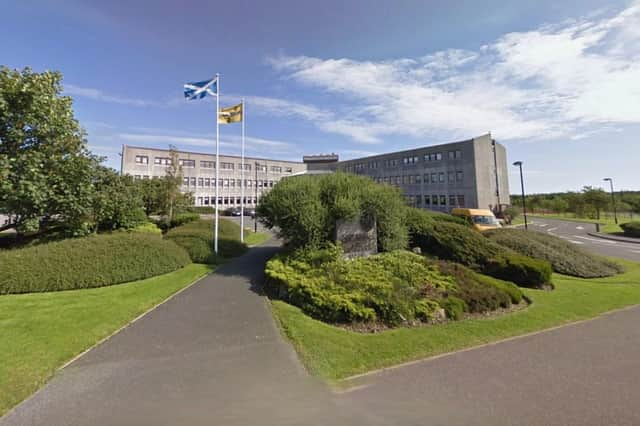Complaints over asylum children sent to the islands


Details of the journey emerged in a report to go before councillors on Tuesday which sets out the “arduous” near 20 hour journey the children had to undertake, before being met by social work staff in Inverness and travelling on to Ullapool for the ferry.
The report states that the feedback from comhairle staff was that the final leg of the journey was ‘upsetting’ for the children concerned, and also states that a request has been made to Social Work Scotland, the leadership body of social work in Scotland, to “escalate” the comhairle’s concerns with the Home Office. It was hoped that in the future “a solution will be found” that will see asylum children being able to “take a more direct route to any of the three island authorities.”
Advertisement
Hide AdAdvertisement
Hide AdSocial Work Scotland said that the issue was because of the time it was taking the Home Office to process documentation to enable alternative means of travel, including flights. Waiting for the necessary documentation would mean children having to "remain in a hotel in Kent" until it was obtained,
A spokesperson said: “All of Scotland’s local authorities are part of the Home Office mandatory scheme which allocates unaccompanied children arriving in the south of England to local authorities across the UK, and unaccompanied children are considered to be looked after in Scotland and therefore have the full protection which comes from that status.
“This also places specific duties of care on local authorities. Along with COSLA and Scottish Government, Social Work Scotland have developed Scottish guidance and supports to local authorities, and we are proud of the efforts made across the country to provide comfort and security to our unaccompanied children which will enable a level of recovery, despite the many challenges.
“The distance children must travel to reach Scotland means a long journey, and from place of arrival to rural and island areas pose particular challenges. This is further complicated by the fact that children cannot normally travel by air due to requirements by airlines that travellers hold photographic ID, something which few if any unaccompanied children possess.”
Advertisement
Hide AdAdvertisement
Hide AdSWS said that while an application can be made for an Application Registration Card, which the UK Government website confirms means that the person, or their dependant, is an asylum claimant and can remain in the UK while their claim is pending, “this takes several weeks, and means a child must remain in a hotel in Kent while this is obtained, something which is both not in their interests and which also has repercussions for the receiving authority’s ability to meet the requirements of the Home Office Scheme.”
SWS also confirmed that discussions are continuing with the Home Office around whether overnight stays could be considered to alleviate some of the travel pressures currently being experienced by UASC.
Local authorities in the UK have a legal duty to participate in the NTS which was established to ensure that local authorities across the UK receive a quota of UASC into their care. The Home Office confirmed this week that the NTS has seen 3,148 children transferred to local authorities between 1 July 2021 and 30 September, and the at the time of writing, the report going before councillors next week said that 5 unaccompanied children were placed in the Western Isles.
The Comhairle report set to go before councillors next week, also states that money received from the UK Government “is sufficient to both cover the care costs and to employ a full-time Resettlement Officer”, locally.
Advertisement
Hide AdAdvertisement
Hide AdThe report adds: “This is a new area of work for Children’s Services staff, but by working in partnership with our Education and Health colleagues, we have thus far managed to rise to the challenge and provide secure, nurturing, attaining, achieving and reparative experiences for the UASC.
“Children’s Services have accepted their responsibilities under the National Transfer Scheme (NTS) and have actually exceeded their mandated quota. This is a significantly important development for Children’s Services, who accept not just their legal responsibilities to participate in the NTS, but also accept there is a moral responsibility to do so.
“The Comhairle, and partner agencies, have a corporate parenting responsibility towards UASC, and it will only be through good partnership working that we achieve positive outcomes for UASC.”
A Home Office spokesperson said: “The safeguarding and welfare of unaccompanied asylum seeking children is our utmost priority and we will always ensure their immediate needs are met.
Advertisement
Hide AdAdvertisement
Hide Ad“We are working around the clock with local authorities to seek placements for unaccompanied asylum-seeking children across the UK.”
Since the publication of the report set to go before councillors next week, it has also emerged that an agreement has been reached between the Comhairle and airline, Loganair, that may address some of the issues identified.
The Comhairle was asked if it could confirm that such a deal had been reached with Loganair to enable unaccompanied asylum children to fly along with a member of council staff and if a solution had been found.
A spokesperson for the Comhairle responded: “Yes, we are able to confirm this. Loganair have shown understanding and compassion in allowing UASC to use their flights in order to travel to the Outer Hebrides.
Advertisement
Hide AdAdvertisement
Hide Ad“Any UASC will be accompanied by a council employee who is empowered to look after them during the child’s journey. Cabin crew cannot be legally responsible for the care and wellbeing of the UASC during the flight.”
However, a question still remains about what formal ID documentation will be required by the children. The Home Office have been approached for comment.